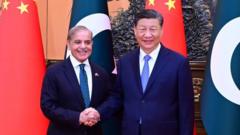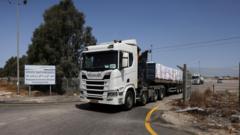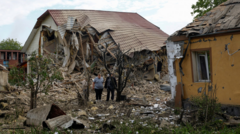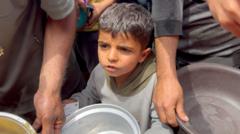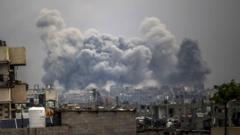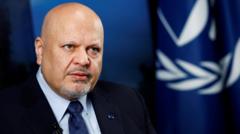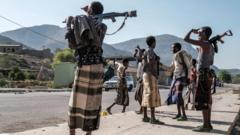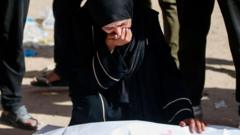The conflict in Sudan has led to significant territorial shifts as the army asserts control over Khartoum state amidst ongoing hostilities.
Sudan’s Military Claims Victory Over Rebels in Khartoum
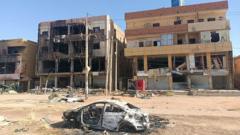
Sudan’s Military Claims Victory Over Rebels in Khartoum
Military declares Khartoum state free of Rapid Support Forces as battles continue in Omdurman.
In a recent declaration, Sudan’s military has announced the complete expulsion of the paramilitary group, Rapid Support Forces (RSF), from Khartoum state, marking a significant milestone in the ongoing civil conflict. "Khartoum State is completely free of rebels," stated the military via the Sudan News Agency. This announcement follows the military's recapture of Khartoum city—including critical infrastructures such as the presidential palace—nearly two months ago, signifying a substantial victory against RSF.
Fighting, however, persists in the adjacent city of Omdurman, which is also part of Khartoum’s metropolitan region. On Tuesday, tensions escalated further as the military launched a “large-scale offensive” in response to ongoing skirmishes. As of yet, the RSF has not issued any comments regarding these latest military assertions.
Khartoum, once the nucleus of Sudan's governance, has seen a drastic shift as military leadership has relocated to Port Sudan following the RSF's takeover. Port Sudan, which had been perceived as a safe haven, has become embroiled in conflict, recently facing drone attacks attributed to the RSF, further destabilizing essential services and leading to water shortages.
The civil strife has also strained international relations, particularly with the United Arab Emirates (UAE), which Sudan accused of backing the RSF. The UAE has vehemently denied these claims, branding them as "unfounded allegations."
Since the onset of the civil war three years ago, Sudan has grappled with immense humanitarian crises, resulting in thousands of casualties and millions displaced. Both the Sudanese army and RSF face accusations of war crimes—claims they collectively refute. The repercussions of this conflict continue to resonate regionally and globally, as efforts to restore peace remain elusive in a country torn under the weight of war.
Fighting, however, persists in the adjacent city of Omdurman, which is also part of Khartoum’s metropolitan region. On Tuesday, tensions escalated further as the military launched a “large-scale offensive” in response to ongoing skirmishes. As of yet, the RSF has not issued any comments regarding these latest military assertions.
Khartoum, once the nucleus of Sudan's governance, has seen a drastic shift as military leadership has relocated to Port Sudan following the RSF's takeover. Port Sudan, which had been perceived as a safe haven, has become embroiled in conflict, recently facing drone attacks attributed to the RSF, further destabilizing essential services and leading to water shortages.
The civil strife has also strained international relations, particularly with the United Arab Emirates (UAE), which Sudan accused of backing the RSF. The UAE has vehemently denied these claims, branding them as "unfounded allegations."
Since the onset of the civil war three years ago, Sudan has grappled with immense humanitarian crises, resulting in thousands of casualties and millions displaced. Both the Sudanese army and RSF face accusations of war crimes—claims they collectively refute. The repercussions of this conflict continue to resonate regionally and globally, as efforts to restore peace remain elusive in a country torn under the weight of war.







